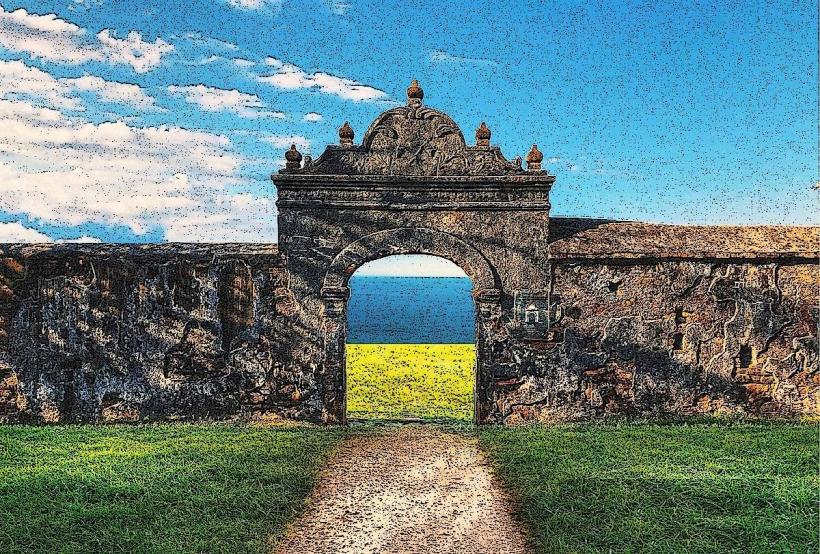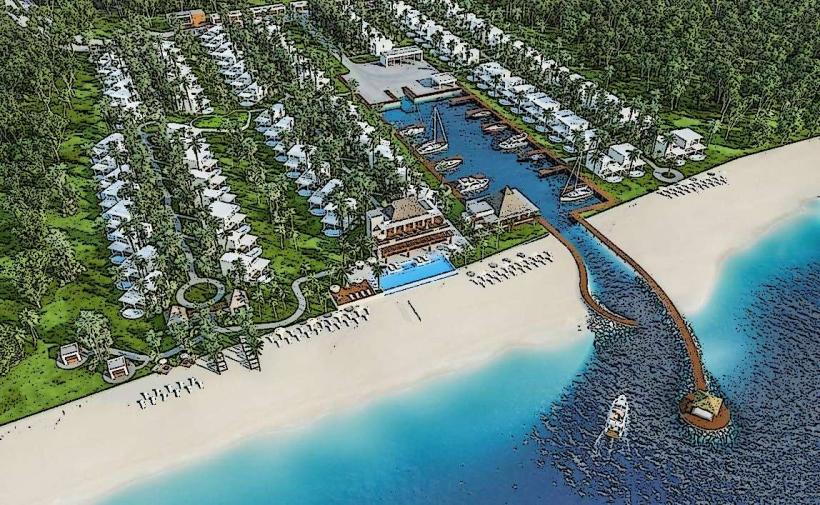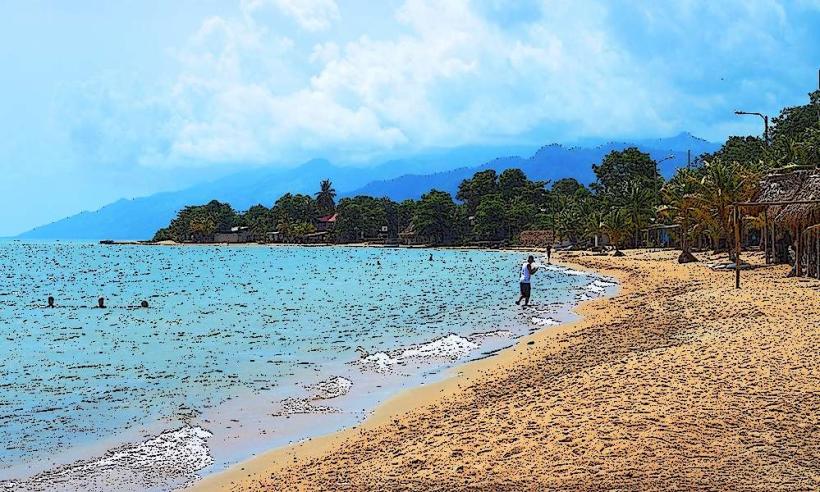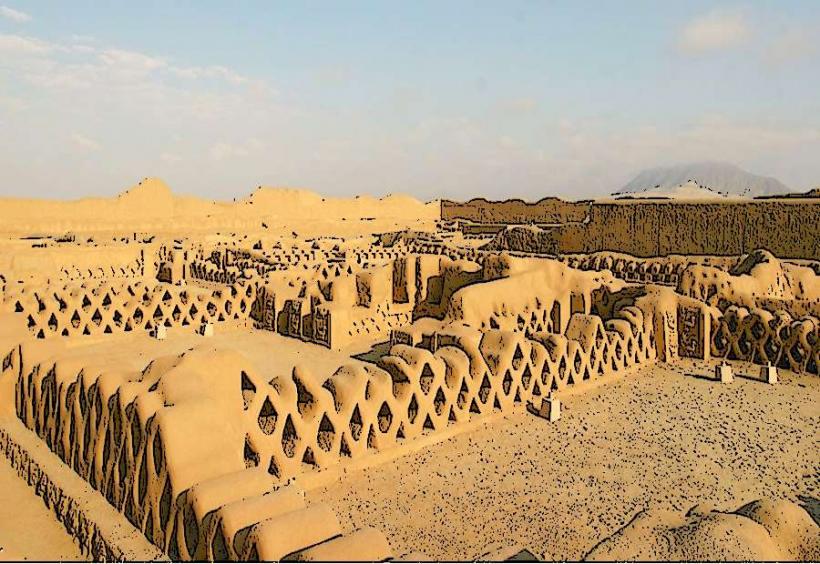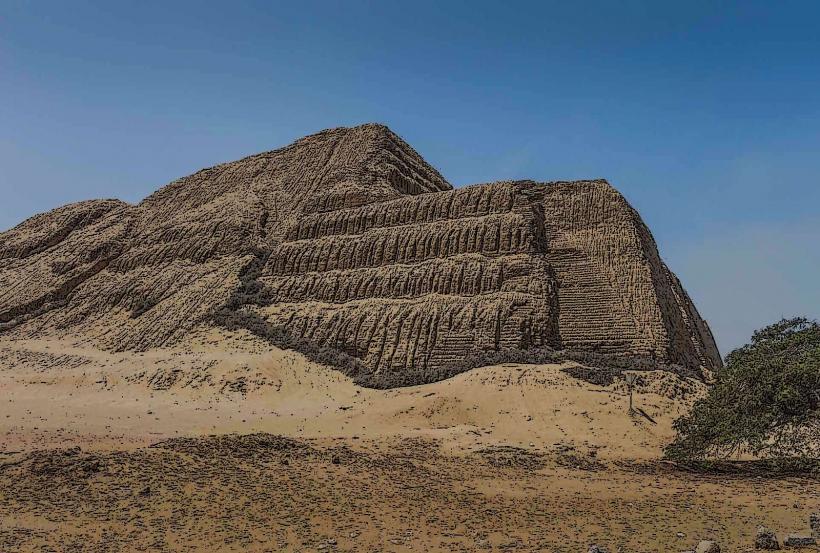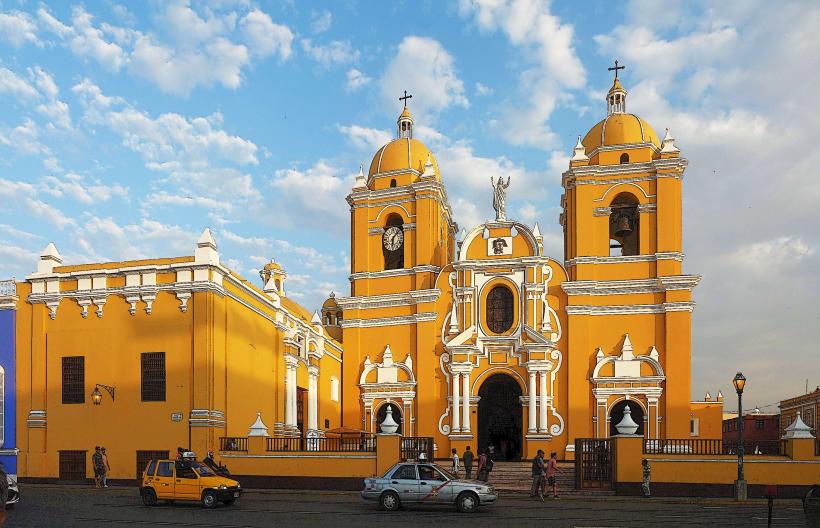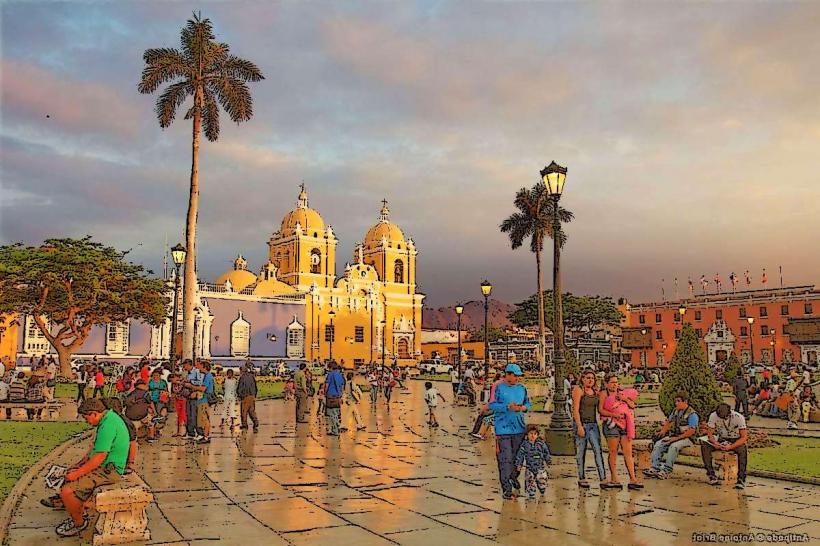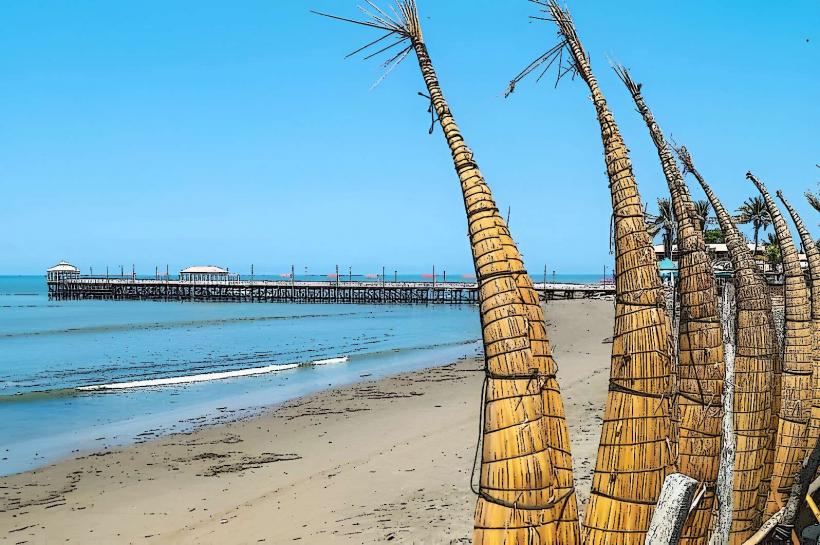Information
Landmark: Fort San CristóbalCity: Trujillo
Country: Honduras
Continent: North America
Fort San Cristóbal, Trujillo, Honduras, North America
Fort San Cristóbal is a historical fortification located in the city of Trujillo, Honduras.
This defensive structure was constructed to protect the port and city from pirate attacks and foreign invasions.
Visual Characteristics
The fort is primarily constructed from stone and mortar. Its walls are substantial, with a height averaging 8 meters. The architectural style reflects Spanish colonial military engineering, featuring bastions and crenellations. The exterior is weathered stone, with some areas showing signs of repair and repointing.
Location & Access Logistics
Fort San Cristóbal is situated on a hill overlooking the Bay of Trujillo. It is approximately 1 kilometer east of the city center. Access is via Calle Principal, which leads directly to the fort's entrance. Parking is available at the base of the hill, with a short, paved walkway leading to the main gate. Public transport within Trujillo typically involves local buses that stop near the city center; from there, a walk or short taxi ride is required.
Historical & Ecological Origin
Construction of Fort San Cristóbal began in the mid-16th century, with significant expansions and reinforcements occurring throughout the 17th and 18th centuries. Its original purpose was to serve as a primary defense against naval assaults, particularly from English and Dutch privateers. The fort is built on a natural elevation that provided a strategic vantage point over the bay.
Key Highlights & Activities
Visitors can explore the ramparts and observe the layout of the defensive structures. The central courtyard offers views of the surrounding area. Interpretive signage provides historical context. Photography of the fort and the bay is a common activity. Access to all accessible areas of the fort is permitted during operating hours.
Infrastructure & Amenities
Restrooms are available near the entrance. Limited shade is provided by the fort's structure itself. Cell phone signal (4G) is generally available within the fort's perimeter. There are no on-site food vendors, but several small eateries and shops are located in the nearby city center.
Best Time to Visit
The best time of day for photography is in the late afternoon, when the sun is lower and casts longer shadows, highlighting the fort's textures. The dry season, from December to April, offers the most favorable weather conditions with minimal rainfall. There are no tide-dependent activities associated with visiting the fort.
Facts & Legends
A local legend suggests that a hidden tunnel once connected the fort directly to the sea, allowing for secret escapes or supply deliveries during sieges. While no such tunnel has been definitively proven, the strategic location and historical context make such a possibility plausible.
Nearby Landmarks
- Plaza Mayor de Trujillo (0.8km West)
- Iglesia de San Juan Bautista (0.9km West)
- Museo de Arqueología y Antropología de Trujillo (1.1km West)
- Bahía de Trujillo (0.3km South)

